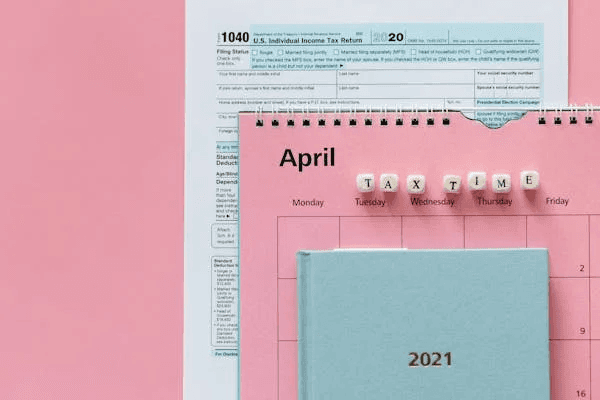Step-by-step Guide on How to Reduce Taxes for TikTok Shop Sellers Accountant for USA Companies

The meteoric rise of TikTok as a global phenomenon brought novel prospects for entrepreneurs. The TikTok Shop feature has enabled sellers to connect with vast audiences and yield substantial income. By 2024, the site anticipates its US commercial sales will increase tenfold, up to $17.5 billion.
However, with amplified earnings comes the inevitable duty to pay levies. For TikTok Shop sellers in America, comprehending how to navigate the intricate tax landscape is pivotal. This guide provides a step-by-step approach to diminishing levies, confirming adherence, and maximizing profits.
Step 1: Look Into Your Tax Requirements
Before delving into strategies for reducing taxes, it's vital to comprehend your tax obligations as a TikTok Shop seller. Understanding what sums you owe and when payments are due forms the foundation for intelligent tax planning.
Taxes are a complex matter for those earning income independently. Federal income tax rates vary from 10% to 37% based on total profits and a self-employed person's share.
In addition to income taxes, self-employment levies applied to net earnings at a present 15.3% rate must be satisfied.
Location can impact fiscal duties, too. States like New York and California have high state income tax rates to factor in. However, Texas and Florida residents have no state taxes to consider. Wise sellers check their own state's requirements to dodge unforeseen bills down the road.
For those offering physical goods on TikTok Shop, sales tax collection and remittance may be mandatory. Obligations differ by location and are defined by customers' places of residence.
As self-employed individuals, regular estimated payments are necessary to satisfy both income and self-employment obligations. Missing deadlines risk penalties from the IRS.
Step 2: Claim Home Office Tax Deduction

For those working as a home-based TikTok Shop vendor, taking advantage of the home office tax deduction may help lighten your tax load. This provision enables you to offset some of your income by citing a portion of rent or mortgage, utility bills, and additional residence-linked costs.
To be eligible, your dwelling must serve as your main place of business, and the area must be exclusively and routinely used for work. You have two options to tally up the reduction:
Simpler Method: Deduct $5 per square foot of your home office up to a max of 300 square feet.
Actual Bills Approach: Calculate what percentage of your residence is dedicated to work and apply that proportion to real costs like rent, utilities, insurance, and upkeep.
By claiming this home office exemption, you may potentially lessen your final tax liability, providing a useful perk for those running a TikTok Shop operation out of their home.
Step 3: Deduct Business Expenses
One of the most effective ways to lower your taxable income is by deducting legitimate business expenses. These deductions dramatically reduce your overall taxable income, lowering your tax bill considerably. Some common expenses to eliminate are as follows:
Marketing and advertising costs help promote your TikTok Shop, from influencer partnerships and targeted TikTok ads to useful social media optimization tools. Both direct advertising expenditures and indirect software subscriptions aid promotion and customer acquisition.
All expenses related to transporting products from the warehouse to the customer's door can be fully deducted, covering packaging materials, postage, and delivery fees. Even fees paid to third parties who fulfill orders on your behalf are deducted from taxable earnings. Additionally, fees paid to creators hired to make user-generated content videos for your TikTok Shop business can be deducted.
The cost of acquiring inventory and raw materials that become the products sold represents a sizeable deduction known as the cost of goods sold. This substantial write-off encompasses all supplies directly tied to making or obtaining merchandise for resale.
Professional services vital to running a business, such as accounting, legal counsel, and consultant guidance regarding complex issues, are deducted entirely. This comprises tax planning, legal advice, and specialized assistance.
Essential technology and software powering your TikTok Shop operations can also be deducted, including website hosting, shopping cart systems, and helpful applications. Plus, computers, phones, and other devices used predominantly for business purposes are deducted from taxable profits.
Step 4: Utilize the Qualified Business Income (QBI) Deduction

The Qualified Business Income tax deduction enables eligible self-employed TikTok Shop sellers to subtract up to 20% of their qualified commercial earnings from their taxable profits. This subtraction is available to sole proprietors, limited liability companies, and S-corporations but has specific qualification criteria.
Earnings Thresholds: For the 2024 tax season, the complete 20% subtraction available is $14,600 for single filers and married spouses filing separately. If your profits exceed these boundary amounts, the subtraction could potentially be restricted or entirely phased out.
Qualified Business Profits: QBI generally comprises your net profit from operating your TikTok Shop, excluding wages earned, capital gains, dividends, and interest earnings. Precise bookkeeping is crucial to accurately calculating your QBI.
Step 5: Take Advantage of Retirement Contributions
Contributing to retirement ensures financial security in the future and provides immediate tax benefits. For merchants on TikTok Shop, funding retirement accounts can mean reductions in this year's tax bill through various contribution types:
SEP IRAs permit contributions up to 25% of net earnings capped at $69,000 for 2024. These contributions lower taxable income as they are tax-deductible for the year.
Solo 401(k)s enable contributions as both an employee and employer. Up to $23,000 can be put in as an employee or $30,500 for those over 50, plus 25% of net self-employment income as an employer up to the $69,000 overall limit for 2024.
Traditional IRAs allow tax-deductible contributions up to $7,000 or $8,000 for those over 50 for the 2024 tax year. While the maximum is lower, it still offers valuable reductions in taxes owed.
Need Assistance Reducing Tax Requirements of Your TikTok Shop Business? Consult SamsCashFlow Agency

A TikTok Shop vendor in the US has to fulfill diverse tax requirements. Need ways to reduce your liabilities? Visit https://www.samscashflow.com/#book and get in touch with the experts at SamsCashFlow Agency.